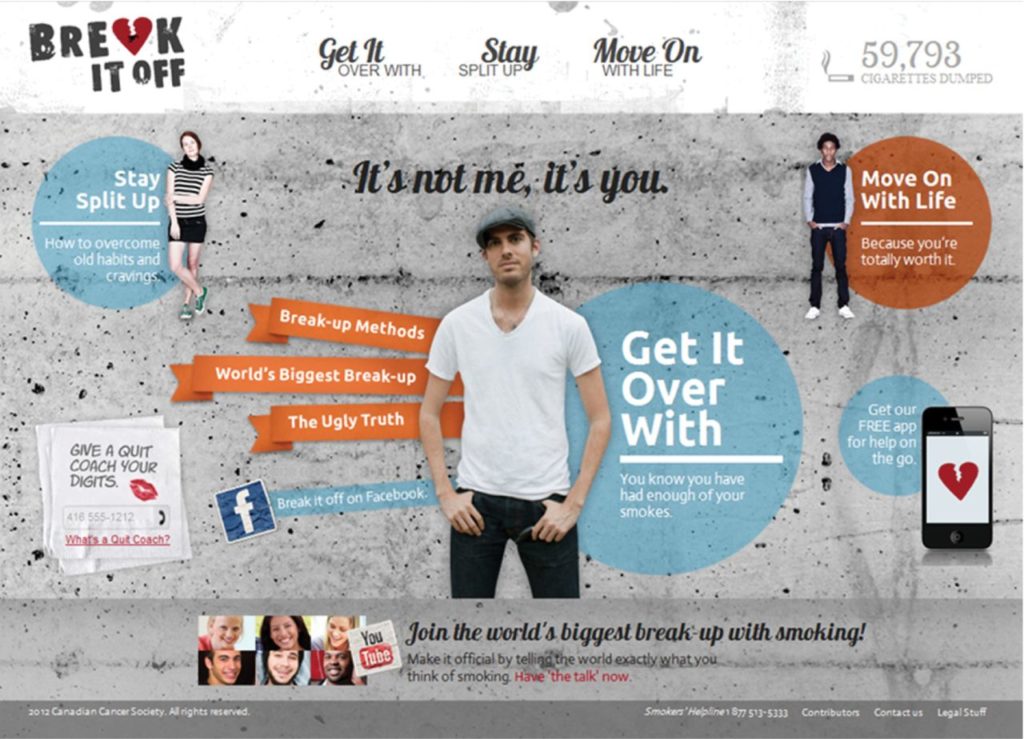Social Media Helps Smokers Quit?
In a new tobacco use study by Niel B. Baskerville and colleagues, researchers looked to expand on recent studies investigating connections between social media use in young adults and behavioral changes. With numerous studies already detailing the drastic impacts that frequent social media use can have on one’s social and physical habits, they set out to find if it could be used to help smokers drop their cigs for good.
For the study, they recruited 238 young adult smokers from Canada who were interested in quitting. While 136 participants were exposed to a more traditional helpline program for smoking cessation, 102 were supplied with a social media-based program.

The above snapshot pictures the social media campaign’s original 2015 landing page. You can still visit the updated page here.
The campaign compared the habit of smoking to the grieving process following a breakup with a previous partner; campaign sayings alligned the effects of cigarettes with those of an abusive lover.
It encourages users to “stay split up” and “move on with your life, because you’re worth it”.
It also takes advantage of the online communication features of social media by engaging new users with specially appointed ‘quit coaches’, finding social support through the program’s Facebook group, and arranging meetup events for members.
Overall, researchers found that this method was highly successful. Participants in the social media group were 205% as likely to quit smoking, and 214% more likely to be able to remain smoke-free over a period of 30 days.
However, since the participants were required to self-report their smoking habits, the reported results may not have been completely accurate.
This is one of very few studies that highlights possible positive effects of social media use. Another example of one such study recorded the success of a social media campaign in reducing stigma against those with disabilities.
One previous study found a possible connection between depression and social media use in young adults. Others, such as this paper documenting the development of a data analysis software built to detect mental illness via patterns of social media use, take a more neutral stance.
And with SupplyGem’s comprehensive social media use report of 2020, it’s no wonder these social services are being studied so intensely. According to the report, over 90% of Millennials use social media, and the average user is active for over 2 hours each day. This means the two studies in the above paragraph represent findings that could affect over 3 billion people worldwide. The former’s linkage to depression, for example, could be viewed as a factor in the change of major depression rates in youth over the past decade – a 52 percent increase from 2005 to 2017, according to a study published in the Journal of Abnormal Psychology.
These usage rates also mean that the smoking cessation program created for this study has the potential to reach an audience of smokers over one thousand times larger than its original sample size.